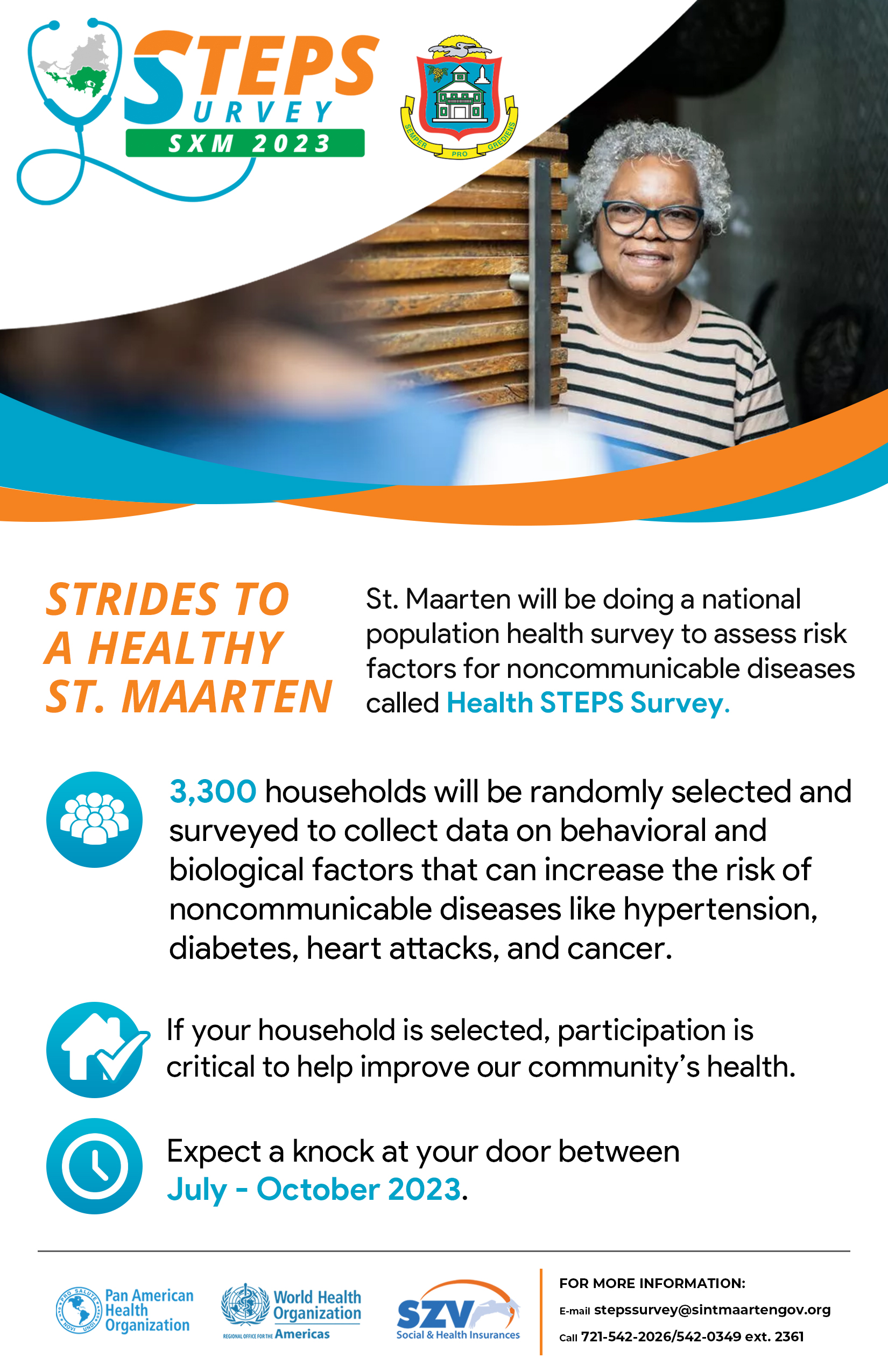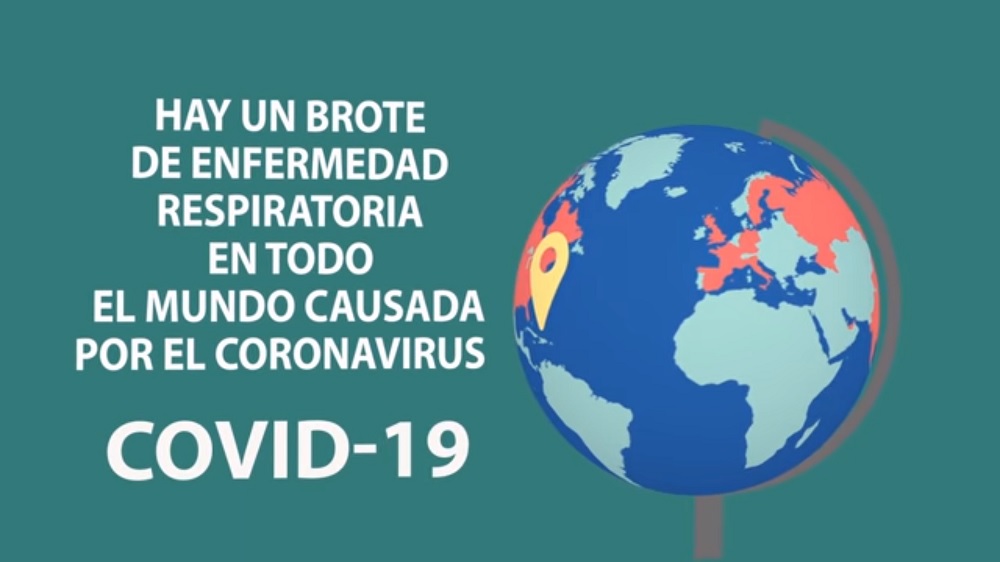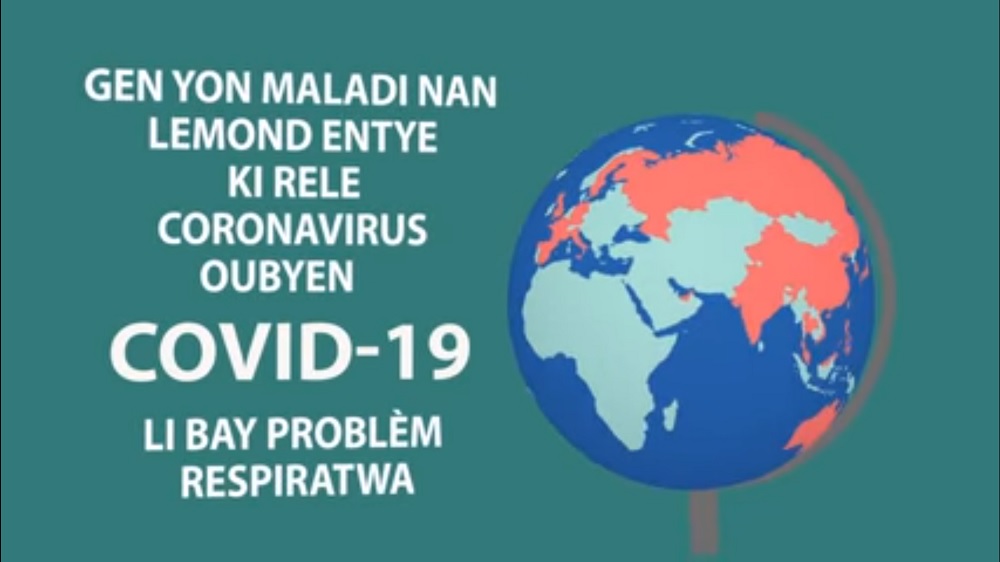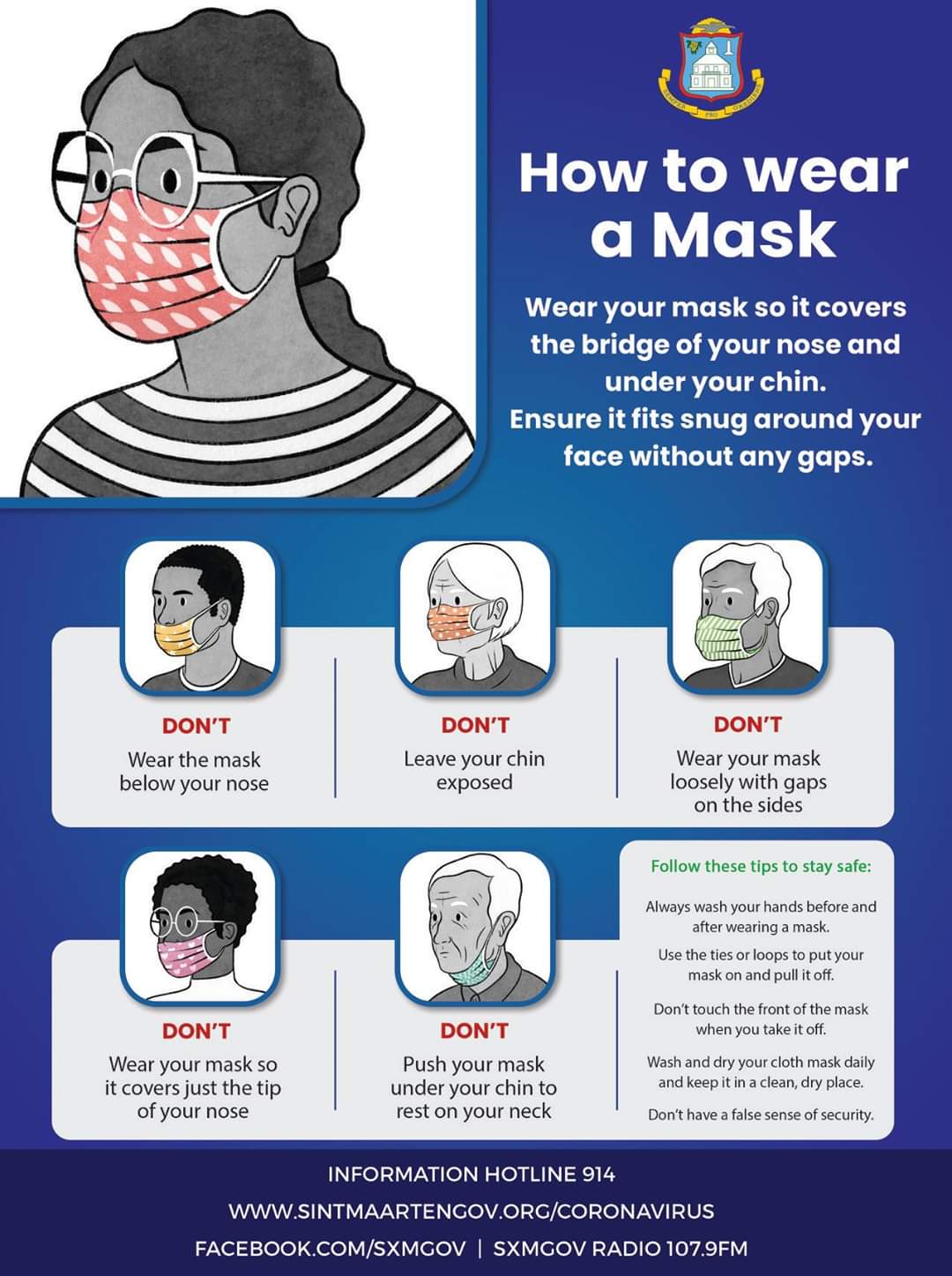Ministry of VSA Partners with SZV & PAHO To Conduct STEPs Health Survey
Noncommunicable diseases (NCDs) are responsible for 81% of all deaths in the region of the Americas, of which 34% befall prematurely in people below the age of 70 years. The main NCDs that affect the region as well as St Maarten are cardiovascular diseases, diabetes, cancer, and respiratory diseases. The PAHO/WHO STEPwise approach to NCD risk factor surveillance (STEPS) is a simple, standardized method for collecting, analyzing, and disseminating data on key NCDs and their risk factors. STEPS is a household survey that gathers information through a face-to-face interview (step 1), simple physical measurements (step 2), and collection of blood samples for biochemical analysis (step 3). Implementing STEPS allows the comparability of data within and between countries due to its standardized data collection. It also helps health services plan public health priorities and monitors and evaluates population-wide interventions.
As planned in the National Multisectoral Action Plan for the Prevention and Control of Noncommunicable Diseases 2021-2030, and with support from PAHO/WHO, the Ministry of Public Health, Social Development and Labor (VSA) will conduct a STEPS Survey to assess NCDs and their risk factors among the population of St. Maarten. In short, between July and October 2023, a random sample of around 3,500 adults between the ages of 18 and 69 years across all districts will be visited and invited for an interview and physiological and biochemical measurements. Data will be collected on people’s lifestyles related to nutrition, physical activity, alcohol, and tobacco use; their BMI, blood pressure, blood glucose, and cholesterol levels; and their experience with preventative health services.
The STEPS Survey will generate recent and reliable information to guide the development of suitable prevention programs and public policy for St. Maarten. The survey findings will help to prioritize health promotion campaigns, population screening programs, and care guidelines for early detection and management of NCDs.











